Under our “Global Estonians” feature we talk to diverse people in different cities, countries, continents. Anna-Liisa Sutt is a senior speech pathologist at the Prince Charles Hospital in Brisbane, Australia.
Anna-Liisa, what made you leave Estonia and how did you end up in Australia?
New Year’s Eve 1998 my dad received a letter from Australia. The letter was from his sister who he didn’t know existed. She had left Estonia with her mom (my grandfather’s first wife) in 1944, and we never knew what had happened to them. That was the start of “dream Australia” for me, I think. My first trip to Australia was back in 2002 when my dad played volleyball at the World Master’s Games in Melbourne. I was studying at the Tartu University at the time, and had to take a month off for the trip. We spent a few weeks in Melbourne and then flew up to the Gold Coast, Queensland, to visit my aunt (dad’s sister). Melbourne was great, but it was when we had landed on the Gold Coast that I got the wow-factor. After seeing a big goanna sitting on a tree branch, lots of palm trees and pools in peoples’ back yards, the endless sand dunes on the beach, I think it really was the first few hours on the Gold Coast that made me decide that I will try and come back. If not as an exchange student, then after graduating from the university.
A few years went past. I had graduated with a degree in speech pathology and was working at the East Tallinn Central Hospital when working holiday visas were instigated for young Estonians wanting to work and explore Australia. I took a few months to decide and applied for a visa. My aunt was more than happy to have me stay at her place, so that’s where I landed early January 2006.
What have been your greatest challenges after moving to Australia?
There have been different challenges throughout my life in Australia. The greatest challenge for me initially was finding a job. I had never really applied for a job in the past. As I wasn’t qualified to work as a speech pathologist in Australia, I had to start by doing something else. Sending ~50 CVs didn’t help with anything either. They didn’t even bother replying to my emails. After knocking on doors at about 10 consecutive restaurants/cafes in Surfers’ Paradise, I managed to get a trial shift for the same night. I ended up working at that same Italian restaurant and also at a sandwich bar for five months. I also took quite a few trips to the local hospital (now the Gold Coast University Hospital) to meet up with the director of speech pathology there to see if they could hire me as a speech pathology assistant. The director happened to be of Latvian background, and as my grandmother is also Latvian with lots of relatives in Latvia, I think she warmed to me quickly. I managed to start as the first ever speech pathology assistant at the GC hospital and worked there until the end of my WHM visa in 2006.
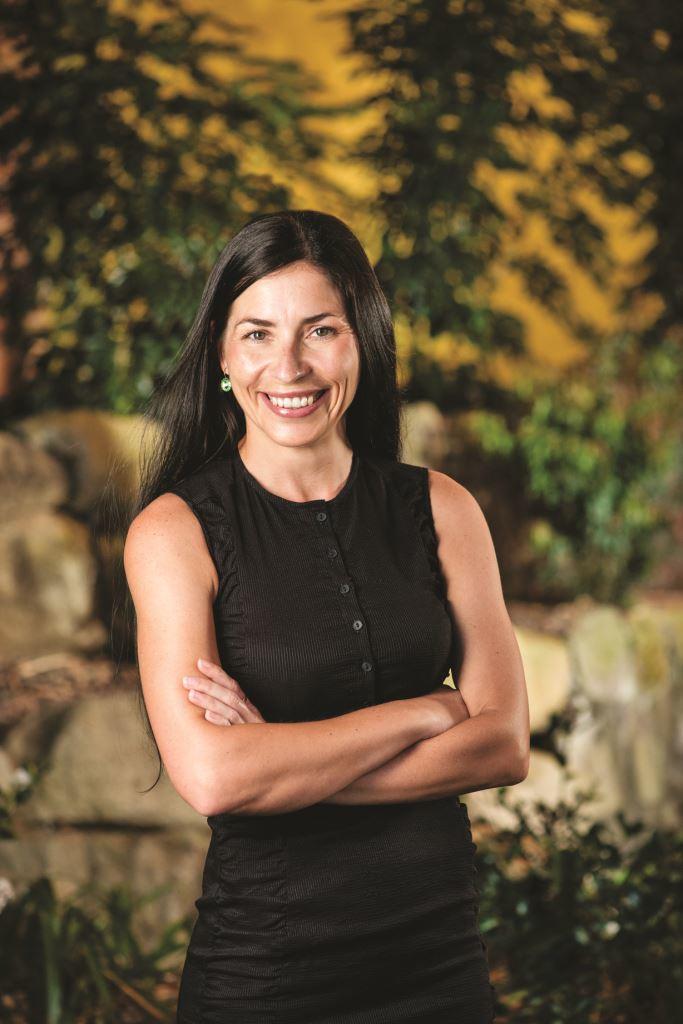
Another, and probably the biggest challenge was to get signed up with Speech Pathology Australia (SPA) to be eligible to work in my profession. Looking back at it now, it almost feels like a whole new university degree. It took me two and a half years, including three months of volunteer work in Education Queensland, a lot of time, effort, paper, nerve wrecking, endless phone calls and emails. If I had to do it again, I think I would say no, thank you. Although, I hear the system has improved a lot since…so not trying to discourage anyone!
The challenge following my successful SPA “eligible for membership status” and skilled migration was to prove to my employer that I was actually a good speech pathologist. I had already made myself a name in Estonia in my profession and had initiated a few new services at the East Tallinn Central Hospital and North Estonia’s Regional Hospital. And now all of a sudden felt like been thrown in the deep end again – new country, having to assess and rehabilitate a language that was my second language, and prove that I was better at it than a local new graduate speech pathologist. Luckily it only took me seven months to successfully apply for a senior speech pathologist position, which opened all opportunities for me to show leadership and innovation again.
My newest challenge is my PhD… I seem to create these situations for myself all the time. I suspect I must secretly love being challenged.
What has been your best work experience?
I currently work as a senior speech pathologist in intensive care at the Prince Charles Hospital in Brisbane. I’ve been here since December 2011, and it is by far the best job that I have ever had. TPCH is a specialist cardio-thoracic hospital. We have got three ICUs: a cardiac surgical ICU, a respiratory ICU and a general ICU. My patients are mostly tracheostomised and mechanically ventilated (breathing tubes in their neck). Generally these patients are left without the ability to talk, as air bypasses their vocal cords. And they often don’t eat or drink and have a feeding tube in place instead. My job is to optimise communication for these patients and get them back eating and drinking. There are speaking valves that we can use to enable verbal communication for these patients; however, there is a lack of research out there to tell us whether these valves are safe to be used for the critically ill patients’ lungs. This lead me to a very relevant clinical question that I am currently attempting to answer. We have an outstanding Critical Care Research Group at the Prince Charles Hospital of which I am honoured to be a member. With the support of the multidisciplinary teams in the research group and ICU, I put together a research plan that would help us find out if we could get our mechanically ventilated patients talking. I was successful in gaining a novice researcher grant and an equipment grant to get my study started. My face and story was also used in one of TPCH Foundation’s campaigns to help raise money for medical research. This is turn has also helped raise awareness of me and my special interest in intensive care in and around the hospital. I have since started as a PhD student in the School of Medicine at University of Queensland. I’m hoping that my amazing supervisor professor John Fraser (an intensivist and also the director of the Critical Care Research Group) will be able to continue to motivate and guide me through the difficult process.
So between full-time clinical work, part time PhD studies, attending and presenting at conferences I find myself continuously filling out scholarship applications to be able to fund my studies and reduce my clinical load for the time being. All of it is continuously challenging, but I am very keen to get answers to my clinical questions to improve healthcare to patients here and worldwide.
I still can’t believe how I got here. Persistence really is the key!
What do you like most about life in Australia?
Despite my work being in Brisbane, I still call the Gold Coast home. I have a Monday to Friday home in Brisbane, but HOME is still on the Gold Coast. I love the proximity of everything. The rainforest and mountains are a 30 minute drive away, the beach is right there. I don’t go to the beach for sun bathing anymore as a lot of Estonians probably would (you really do get over it after living here for some time, and also realise the super high risk of skin cancer), but for playing beach volleyball. I guess volleyball runs in my veins as my coach said during my university days in Tartu. I was never too serious about it, but it sure is an awesome way to spend Saturday and Sunday mornings! And some afternoons.
It is very multicultural here and a lot of people seem to be from elsewhere, also trying to fit in. And that goes for both – playing volleyball and working in health care – the majority of people seem to be foreigners. So I don’t often feel as an immigrant myself. In fact, people sometimes think that I am local. I have certainly lost my American accent, and adopted a beautiful (arguable, I know) Aussie one. People here are generally very welcoming and genuinely interested in you and your background.
What is most difficult about living there and how do you cope?
The most difficult thing now is living so far away from my family and friends. I always thought I’d only move here for a few years. Even when migrating, I didn’t think I’d stay for this long. Every time I get off the plane in Estonia, it doesn’t feel so far away – “only ~20hrs” in the air…but it is on the other side of the world!
Skype and social media are irreplaceable, without a doubt. But I’m looking forward to developments in technology so that I could actually give my loved ones a hug too! I’m sure the tech savvy fellow Estonians will come up with something soon.
I try and get over to Estonia at least once a year. I managed to fly over twice in 2013, and have my parents over here too, so last year was extremely good in that sense.
I also miss certain types of food, but that’s easier to overcome.
What about Estonians in your city and do you still have a connection with Estonia as well?
There is an Estonian society in Brisbane that meets up once a month. I try and take part in these gatherings once every couple of months. I also have a few Estonian friends in Australia that I see a few times a year. And my aunt lives half an hour away whom I visit too.
Up until this year I was organising workshops for speech pathologists and related professions every time I came back for a “holiday” in Estonia. I had a few of my Australian colleagues with me twice to conduct workshops for Estonian, Finnish and Latvian colleagues, as certain areas in speech pathology are a lot more advanced in Australia. I was also a part of the board for Estonia’s Logopedists’ Union until the end of 2012 and helped them create their new competency-based occupational standards. I even had meetings with the social ministry and the Health Fund representatives via Skype representing the clinical speech pathologists in Estonia while actually living and working in Australia already. Although all enjoyable, it actually got quite difficult doing it all late at night due to the time difference. And now that I’m back studying again, I have pulled back a little from being involved in the Estonia’s Logopedists’ Union’s work and professional development activities. I still mentor quite a few of my colleagues back home and help them develop the newer areas of speech pathology in Estonia.
What do you miss most about Estonia and would you ever consider returning? What are your plans for the future?
I miss home. Home is where the heart is, they say, and as long as I’ve got friends and family in Estonia, a big part of my heart is there.
I also miss the culture. The concerts, the theatre, the TV shows and series. I know I’m biased, but Estonians are just so talented. In everything! The music is better, the jokes are funnier and the food is tastier.
I have thought about moving back to Estonia. Initially always saying that it’d be in a few years time. Now it’s looking more like in five years. Only time will tell, I guess.
What do you think should be done differently in Estonia?
The way the health care is set up and funded!
I’ve got used to being able to afford things. I was working across two different hospitals in three different buildings and saw private patients before I left Estonia. And all of that to just try and get by. I could never afford a holiday or a nice car, definitely not a trip to Australia.
I’ve also got used to being respected in my job, and sought after. There is still a long way to go in Estonia to further develop the profession, promote it and increase the doctors’, nurses’ and patients’ knowledge about what speech pathologists can offer. As there are only 50+ speech pathologists working in hospitals in Estonia, it is not something that will happen overnight. It requires a lot of extra work, for which a lot of us lack time. The same really goes for other allied health professions (physiotherapists, occupational therapists, psychologists, pharmacists etc) in Estonia that are not currently even recognised as health professionals. We don’t even have access to patients’ electronic medical records, but at the same time we’re providing patients with Health Fund services. Just a sidenote – there are a lot more allied health professionals in the Australian health care system than there are doctors, and Estonia is/should be heading in the same direction. So the regulation of these professions in Estonia needs to be thought about as soon as possible.
I’m not even going to go into politics though, because honestly, I can’t say many positive things about the politics in Australia either.
I
Cover photo: Anna-Liisa Sutt on Kangaroo Island, South Australia. Photos courtesy of Anna-Liisa Sutt.

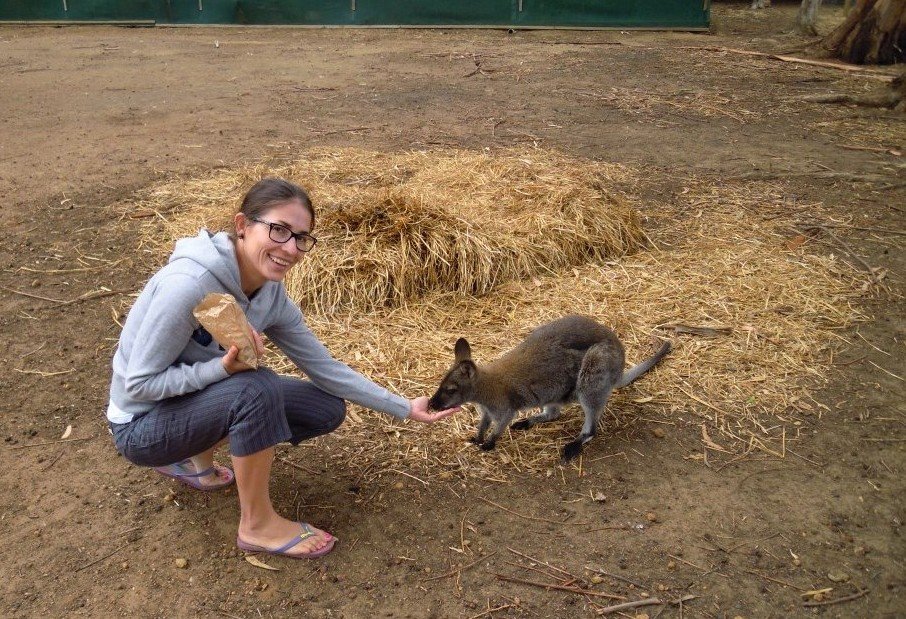
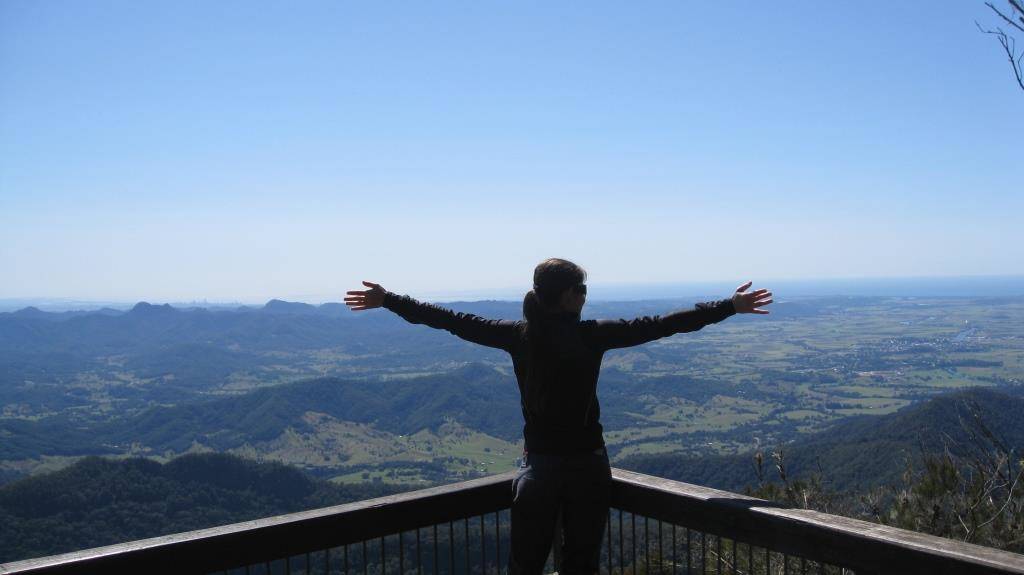
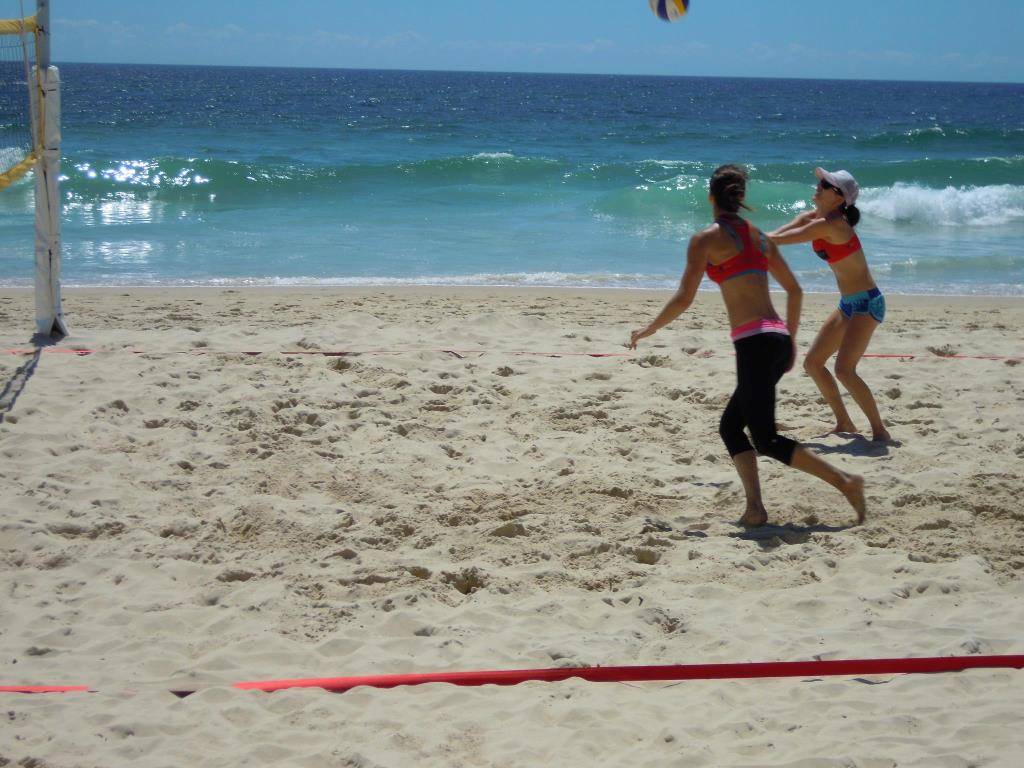

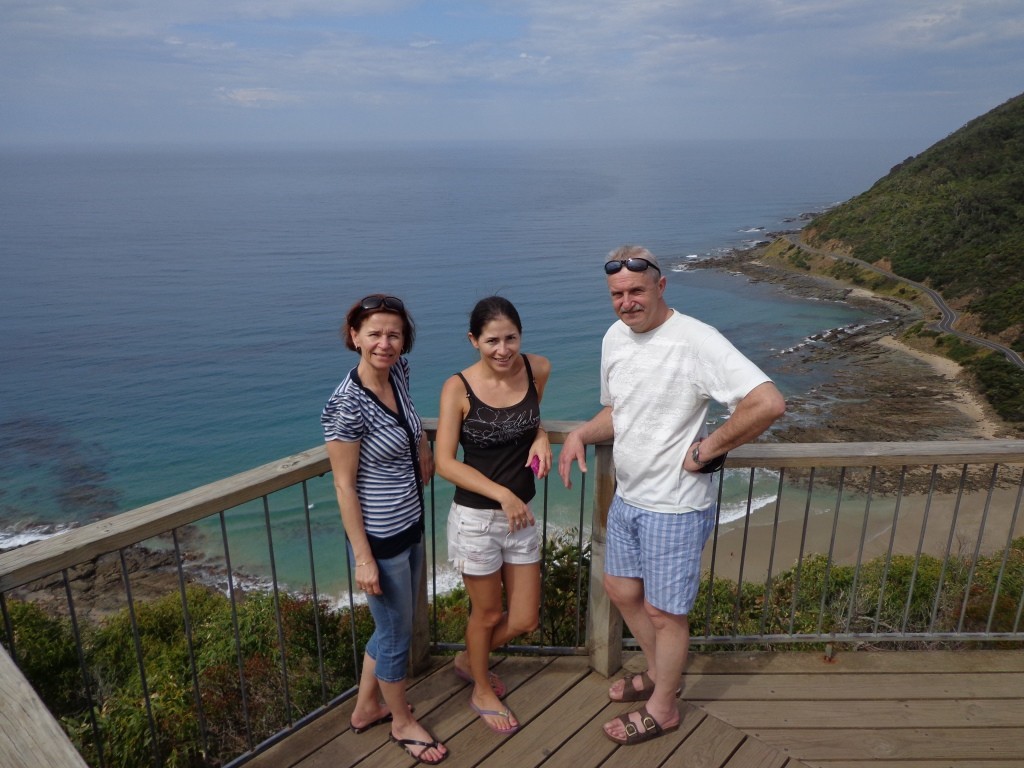
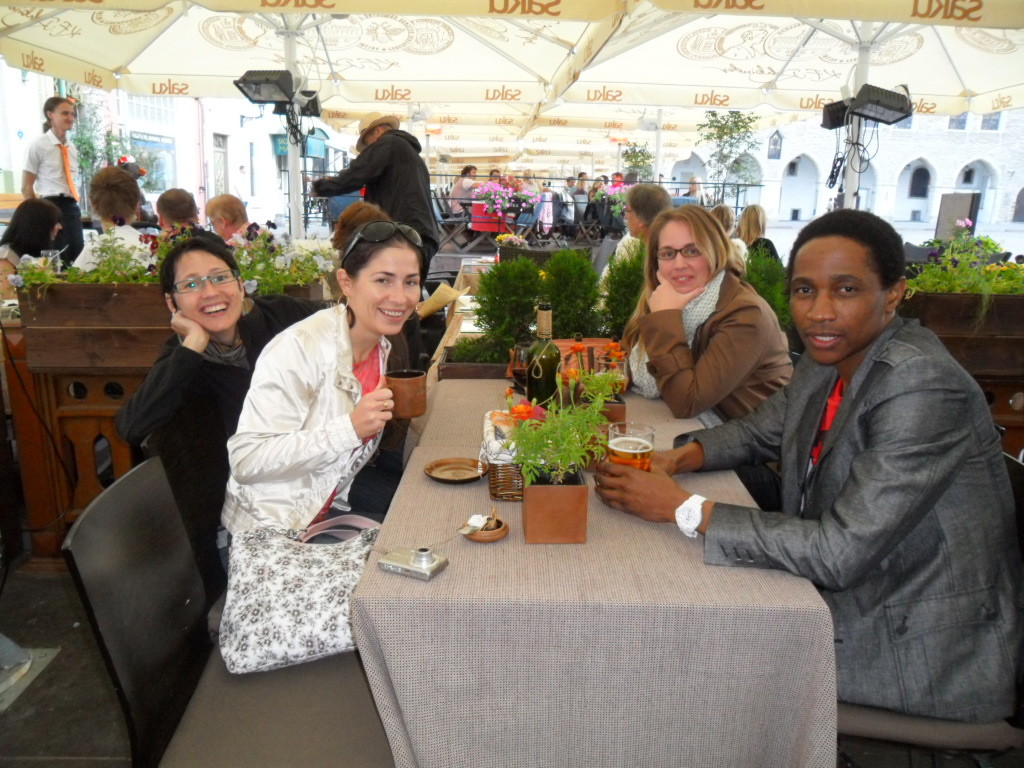
Great story about a determined young woman!
Very inspiring story and very well written. Would like to own so much persistence!